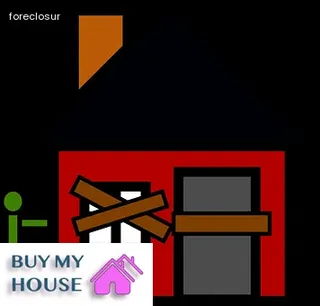Navigating delinquent HOA dues in Texas can be a confusing and overwhelming process. It is important to understand the rights and limitations of Homeowners Associations (HOAs) and Condominium Owners Associations (COAs) when it comes to assessing and collecting dues.
HOAs are typically responsible for common areas such as pools, parks, playgrounds, or recreational facilities; while COAs are responsible for shared areas in multi-level dwellings like elevators, hallways, lobbies, roofing, and exteriors. Both associations have the right to assess fees for their upkeep but must follow certain procedures.
To start with, the assessment must be fair and reasonable and applied equally to all homeowners or condo owners within the association. Additionally, they must provide clear information on how much is due each month along with payment options such as automatic withdrawal from a bank account or credit card payment.
The association may also charge late fees if payments are not received in a timely manner; however, they cannot add additional interest or penalties that exceed the amount allowed by state law. Most importantly, HOAs and COAs cannot foreclose on a property for non-payment unless it is stated in their governing documents; therefore it is important to read through these documents carefully before making any decisions about how to handle delinquent dues.

In Texas, Homeowner's Associations (HOAs) and Condominium Owners' Associations (COAs) are responsible for collecting delinquent fees from homeowners. Understanding the lien laws related to these fees can help homeowners better understand their rights and limitations when dealing with delinquent dues.
Generally, HOAs and COAs have the right to place a lien on a property for delinquent fees, which allows them to collect those fees through foreclosure if necessary. However, they must follow certain steps before they can legally place a lien on a property.
In Texas, HOAs and COAs must provide homeowners with at least 30 days written notice of their intent to place a lien along with an itemized statement of all unpaid fees. This statement must include the amount due plus any interest or late charges associated with that amount.
The homeowner then has 30 days from the date of receipt of the notice in which to pay any amounts due prior to the HOA or COA filing suit against them in court or initiating foreclosure proceedings. It is important to note that other states may have different requirements regarding lien laws so it is essential for homeowners to research their state specific laws if they are dealing with delinquent HOA dues.
Texas law provides strict guidelines for associations when it comes to foreclosing on delinquent HOA and COA dues. Generally, the first step in the process is to notify the homeowner of the delinquency and give them time to cure (pay) the past due balance.
If the homeowner does not pay, then a lien must be placed on their property which allows the association to collect past due payments from future sales of that property. The next step is filing a foreclosure lawsuit against the owner in court, which can take several months or even years depending on case complexity.
Finally, if all other attempts at collecting dues have failed, an auction may be held where interested parties can bid on the property and it will be sold to the highest bidder. It is important for homeowners to understand their rights and limitations when it comes to HOA and COA liens so they can properly navigate any delinquent dues issues they may encounter.

When it comes to navigating delinquent HOA dues in Texas, understanding the role of your mortgage is critical. Your mortgage lender may have the right to pay past due HOA or COA dues from escrow funds and add them to your loan balance.
If you are in arrears with your HOA or COA dues, these organizations may place a lien on your property, which could potentially be enforced by your mortgage lender if they choose. It is important to understand that while mortgage lenders have the right to pay delinquent HOA or COA dues with escrow funds and add it to the loan balance, they are not required to do so.
As part of their agreement with you, they may set specific terms for when they will exercise this right. Understanding these conditions can help you better manage delinquent payments and protect yourself from potential foreclosure proceedings.
Before making any decisions regarding payment of delinquent fees or liens placed on your home, it is important to consult with legal counsel or an experienced real estate professional who can advise you of your rights and limitations under Texas law.
Navigating delinquent HOA dues in Texas can be a tricky situation for homeowners. If a homeowner has delinquent dues, their Homeowner Association (HOA) or Condominium Owners Association (COA) may attempt foreclosure against them.
In this case, seeking legal advice is essential to understand one’s rights and limitations. Texas law dictates that if an individual fails to pay duly assessed dues, the HOA or COA can foreclose on the property after giving notice.
Depending on the type of property being foreclosed on, there are different procedures that must be followed, as well as potential defenses available to the homeowner. There are also certain factors which can delay or even prevent foreclosure proceedings from taking place, such as paying all past due assessments before the sale date or filing bankruptcy.
Understanding these options and navigating the process with legal help is key when it comes to avoiding foreclosure in the state of Texas. It is important to note that while it is possible to represent oneself in court, consulting a lawyer experienced in HOA and COA litigation can be invaluable when dealing with delinquent dues and potential foreclosure proceedings.

When it comes to navigating delinquent HOA dues in Texas, understanding your rights and limitations is key. Negotiating a payment plan with HOAs or COAs can be complicated and intimidating, but there are steps you can take to make the process more manageable.
Before negotiating a payment plan, it’s important to research state laws regarding HOAs and COAs so that you know exactly what your rights are when attempting to come up with a solution. Make sure you understand all of the terms being presented in the agreement before signing anything.
It's also important to contact your HOA or COA promptly if you're unable to pay dues on time as this will give you more room to negotiate a payment plan that works best for both parties. When discussing the payment plan, make sure all of the terms are clear and that they’re written down in order to avoid any confusion or disputes later on.
Finally, keep an open line of communication between yourself and the HOA/COA throughout the entire process to ensure that everyone is on the same page about expectations for repayment.
Using collections agencies to recover overdue assessments can be a complicated process in Texas. One of the most important things to consider is that the delinquent homeowner must be notified of the intent to pursue legal action before any collection agency can become involved.
Additionally, there are certain limitations on what kind of fees a collections agency can charge and how much they can collect from an individual. It's important to understand your rights and limitations as well as potential laws that may impact the process, such as the Fair Debt Collection Practices Act (FDCPA).
In some cases, it may be wise to consult with a lawyer or legal advisor when entering into an agreement with a collection agency to ensure all parties involved are aware of their rights and responsibilities. Ultimately, using collections agencies for overdue assessments is an option available in Texas but requires careful consideration and understanding of the legal implications.

When it comes to navigating delinquent HOA dues in Texas, understanding the difference between foreclosures and liens is key. Foreclosures occur when a homeowner fails to meet the mortgage obligations and the lender takes legal action to repossess the property.
Liens, on the other hand, are legal claims that creditors can attach to a property when a borrower fails to pay back a debt. Liens are often used by HOA's as a way of collecting past due payments from delinquent homeowners.
In Texas, lenders have up to two years to initiate foreclosure proceedings after a default has been declared. If payment is not received by this two year mark, the lender may begin foreclosure proceedings.
As for liens, they may remain attached until the debt is paid in full or until they are released or cancelled by a court order. It’s important for homeowners in Texas to know their rights and limitations regarding these two processes so that they are better prepared should delinquency occur.
Judicial foreclosures are a serious matter and one of the most drastic steps a Homeowner's Association (HOA) can take in order to collect delinquent dues from a homeowner in Texas. In this type of foreclosure, the HOA brings a legal action against the property owner, typically through a lawsuit.
The court will then issue an order for payment and/or for seizure of the property. If payments are not made as ordered, the HOA may move forward with an eviction and ultimately sell the property to satisfy any outstanding dues.
It is important for Texans to understand their rights when faced with judicial foreclosure proceedings and to know what limitations exist when attempting to navigate delinquent HOA dues. Knowledge of these issues is key in understanding how best to protect your rights when faced with this difficult situation.

The process of a non-judicial foreclosure in Texas is relatively straightforward. In Texas, the Homeowners Association (HOA) has the right to foreclose on a property if the homeowner falls behind on their dues.
The HOA must first record a lien on the property and provide written notice to the homeowner. After that, if the dues remain unpaid, a public sale of the property will be held.
During this process, all parties involved are obligated to follow state-mandated procedures, including proper notification to those affected by the foreclosure and posting of notices about the sale in local newspapers. The HOA then purchases the home at this public sale – either directly or through a third party – and can then resell it or hold onto it for future use.
It is important to note that during this process, homeowners do not have access to any legal remedies such as filing for bankruptcy or defending themselves in court; they are essentially powerless in terms of avoiding foreclosure proceedings once they have been initiated by an HOA. Understanding your rights and limitations when dealing with delinquent HOA dues is essential for navigating through this difficult process.
The effect a lien has on property value is significant and must be taken into consideration when navigating delinquent HOAs dues in Texas. If the homeowner fails to pay their HOA dues, the association has the right to place a lien on the home.
This lien can remain in place until all fees are paid in full and can have a negative impact on the property’s value. The presence of a lien makes it difficult for homeowners to sell their property or refinance any existing mortgages as lenders will not approve loans while there is an unresolved lien attached to the home.
In addition, once a lien is put on record it will appear on title searches which may damage the reputation of not only the homeowner but also that of their neighborhood and community at large. Homeowners must be aware of these effects in order to avoid potential financial losses and ensure that they are making informed decisions regarding delinquent HOA dues.

When dealing with delinquent HOA or COA dues in Texas, it is important to understand how the state handles debt collection. Texas law allows HOAs and COAs to take legal action against homeowners who are delinquent in their payments.
In most cases, a homeowner will be sent a demand letter asking them to pay the past due amount within 30 days. If they do not respond, the HOA or COA can file a lien on the property or even foreclose on it after going through the proper court proceedings.
In addition to this, an HOA or COA may also pursue collections through small claims court for up to $10,000 without an attorney. Furthermore, if the delinquent amount is over $10,000 then the HOA/COA may hire an attorney to pursue payment from the homeowner.
It is important for homeowners to understand their rights and limitations when it comes to navigating delinquent HOA dues in Texas and any potential repercussions that could come as a result of nonpayment.
It is important to understand your rights and limitations when it comes to navigating delinquent Homeowner's Association (HOA) dues in Texas. In the state of Texas, HOAs may not harass homeowners over delinquent dues payments.
This means that they may not call, email or text excessively or threaten legal action or foreclosure. If an HOA does attempt to harass a homeowner in any way, the homeowner has the right to file a complaint with the Real Estate Commission and/or seek legal action for damages.
It is also important to note that although an HOA may be able to sue for payment of delinquent dues, they cannot garnish wages or place a lien on the property without first obtaining a court order. Understanding your rights and limitations as a homeowner will help protect you from potential harassment by HOAs/COAs in Texas.

As a homeowner in Texas, you may encounter delinquent HOA dues and the associated lien. It is important to understand your rights when faced with this situation as it can affect your ability to sell or refinance your home.
Texas law states that HOAs may assess liens on homeowners for unpaid dues, including interest and late fees. The lien will be recorded against the property until all dues are paid in full.
If you choose to make payment arrangements with the HOA, it must be documented in writing and signed by both parties. Additionally, if you decide to challenge the amount of delinquent HOA dues, you must file a lawsuit within 30 days of receiving notice of the delinquency.
If you fail to do so, the lien will become permanent. You should also be aware that an HOA lien can take precedence over any other loan secured by the property's title such as a mortgage or home equity loan.
Therefore, it is wise to understand your rights and obligations before taking any action regarding an HOA lien in Texas.
When it comes to Homeowner's Associations (HOA) fees, it is important to understand the basics of how they work. The most basic concept is that each homeowner pays a set amount of money in order to maintain their community.
This money goes towards things like landscaping, maintaining common areas, and providing amenities such as swimming pools or playgrounds. In Texas, HOA fees are typically billed on a monthly basis and are based on the size and type of property owned by the homeowner.
HOA dues also often include an allowance for special assessments that are used to fund expenses not covered by regular dues. It is important to keep up with these payments as failure to do so can result in delinquent HOA dues which can lead to legal action taken against the homeowner.
It is therefore important for homeowners to fully understand their rights and limitations when it comes to navigating delinquent HOA dues in Texas.

Navigating delinquent HOA dues in Texas can be a daunting task. It is important to understand your rights and limitations when it comes to managing these payments.
Before finalizing a payment plan, explore other options that may be available. It is also important to understand the tax implications of assessments and fees associated with homeowner associations.
Alternatives to traditional payments such as installment plans or credit card payments may provide relief for those struggling with the financial burden of paying HOA dues. Understanding all of your options will help you make an informed decision and ensure that you are in compliance with the regulations of your homeowner association.
Failing to pay HOA dues in Texas can have serious consequences. If you do not pay your dues, the Homeowners Association (HOA) may take legal action against you and place a lien on your property until the debt is paid.
Depending on the specific HOA rules and regulations, you may also be subject to late fees and fines for non-payment. In some cases, the association could even foreclose on your property if you fail to pay the delinquent dues within a certain timeframe.
It is important to understand what rights and limitations exist when it comes to navigating delinquent HOA dues in Texas. Knowing your rights and understanding the potential repercussions of not paying can help you make informed decisions about how to handle any outstanding debts.

In Texas, HOAs are legally allowed to pursue foreclosure on a homeowner that has delinquent HOA dues. However, an HOA must comply with the state’s foreclosure policies and procedures in order to do so.
Before an HOA can force a foreclosure in Texas, they must first send a written notice informing the homeowner of their delinquency and providing them with at least 30 days to make payment or enter into a payment arrangement. If the homeowner does not take action within this time period, the HOA may proceed with filing for a foreclosure lawsuit against them.
It’s important for homeowners in Texas to understand their rights and limitations when it comes to navigating delinquent HOA dues so they are aware of what actions they can take before an HOA forces a foreclosure.
In Texas, the timeline for an HOA foreclosure is dependent on the situation and can vary widely. Generally speaking, if a homeowner has failed to pay their delinquent dues for at least three months, the HOA will initiate a foreclosure action.
The process of filing a foreclosure lawsuit in Texas takes anywhere from 30-90 days. After filing the suit, the homeowner may be given a certain amount of time to cure the delinquency before legal action is taken by the court.
Once a judgment is obtained by the HOA, they may then proceed with foreclosure proceedings. During this process, it can take another 45-90 days until all legal requirements are met and ownership of the property is transferred to the HOA.
Ultimately, navigating delinquent HOA dues in Texas can be complex and homeowners should understand their rights and limitations so they can make informed decisions regarding their situation.
In Texas, a homeowners association (HOA) can evict you if you fall behind on your delinquent dues. Under the Texas Property Code, an HOA is granted the right to foreclose on your property if you fail to pay your assessments.
After the foreclosure process has been initiated and all legal requirements have been met, the HOA may proceed with eviction. However, depending on where in Texas you reside, there may be certain laws that limit or prohibit an HOA from evicting you.
It’s important to understand your rights and limitations when navigating delinquent HOA dues in Texas.